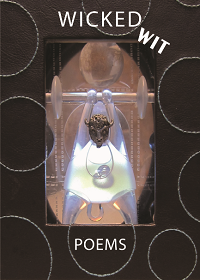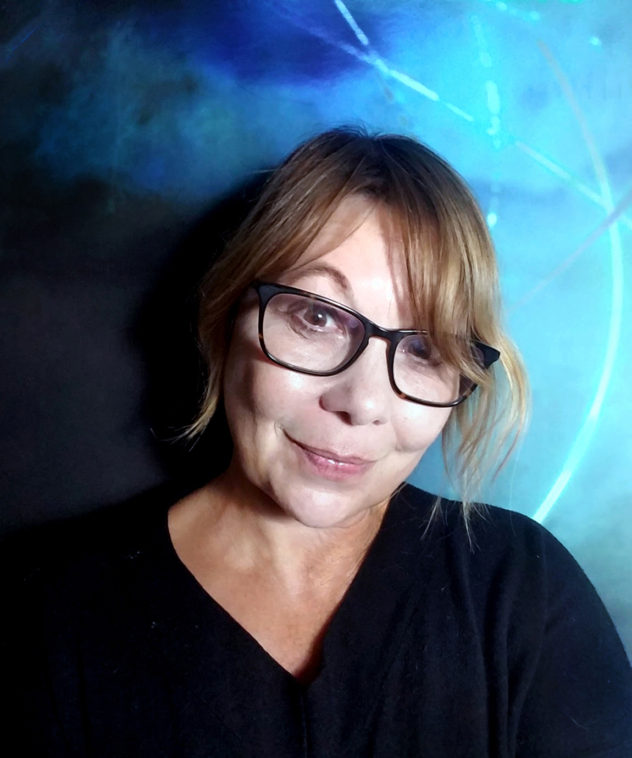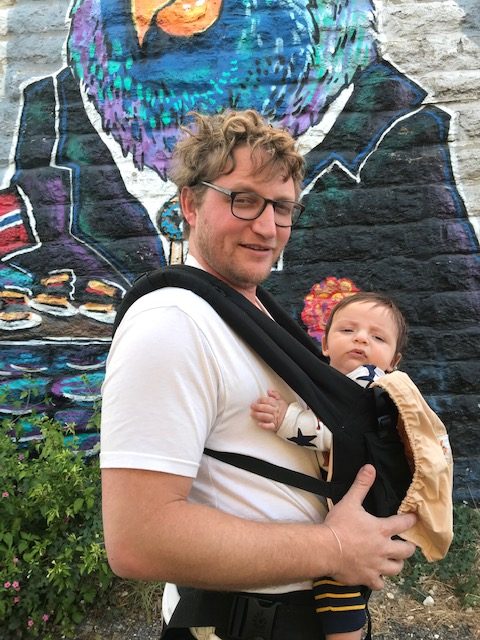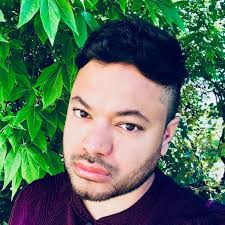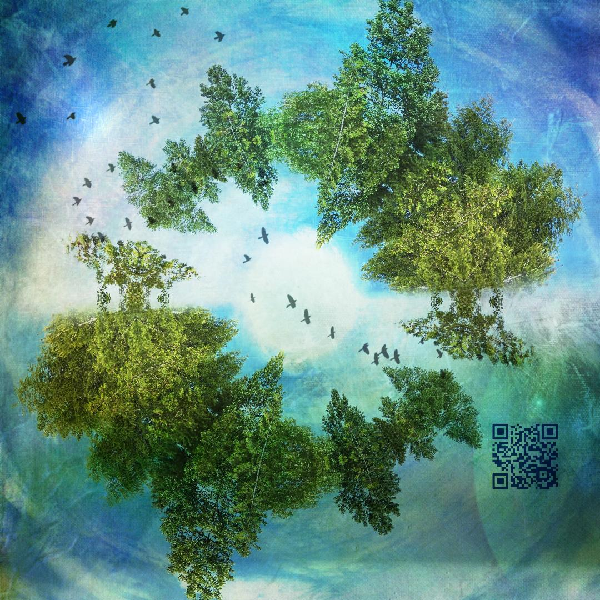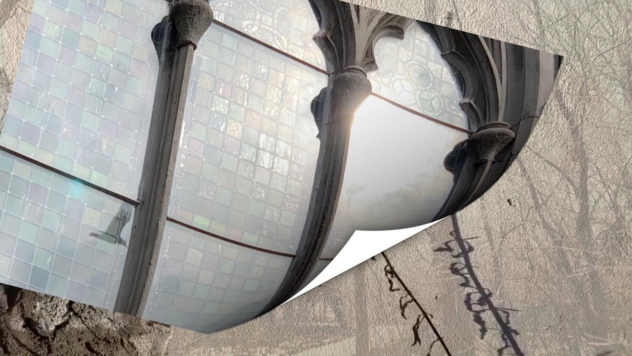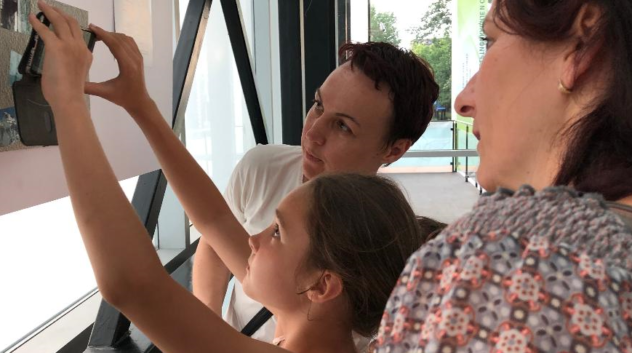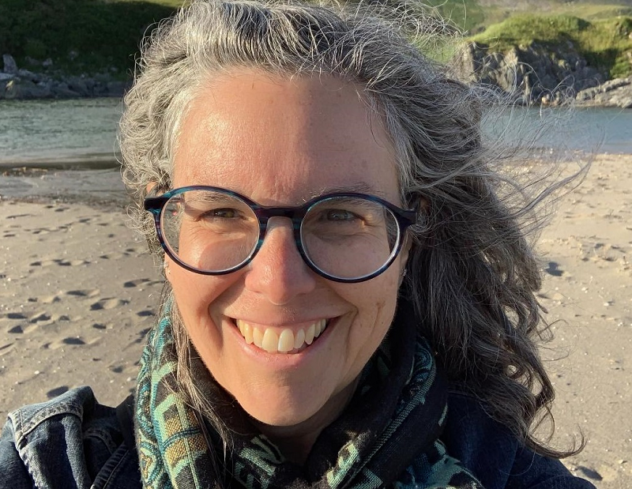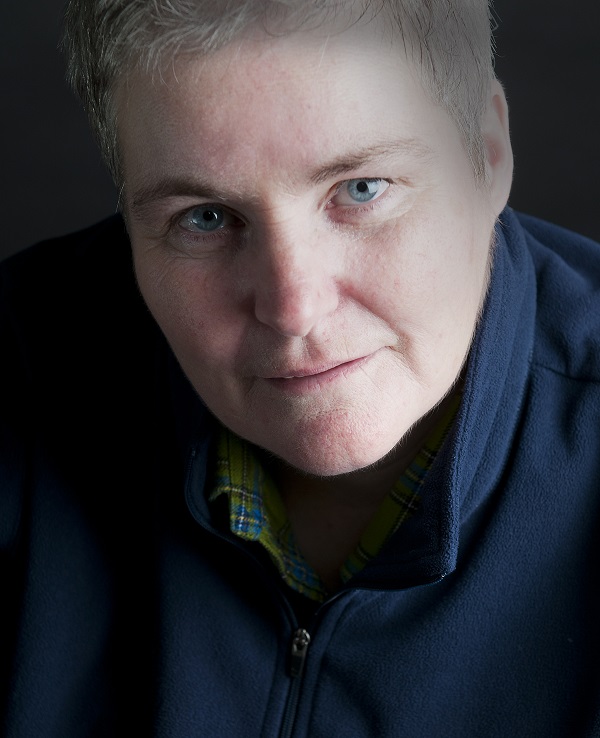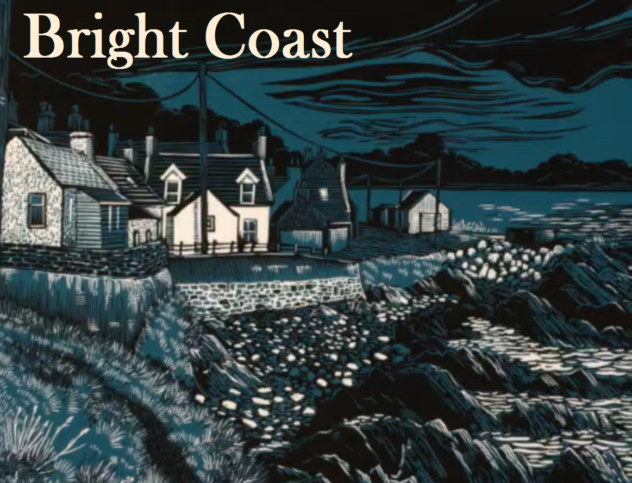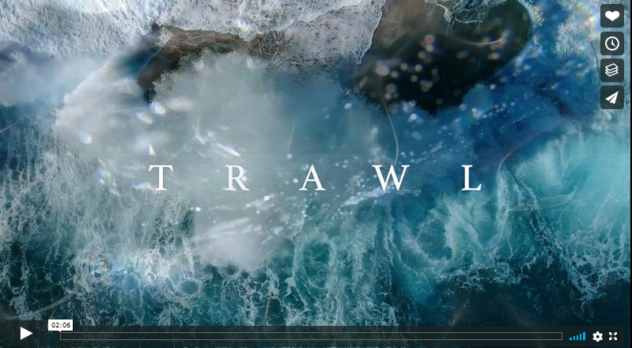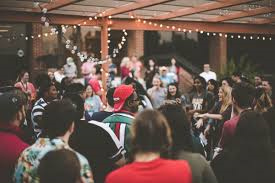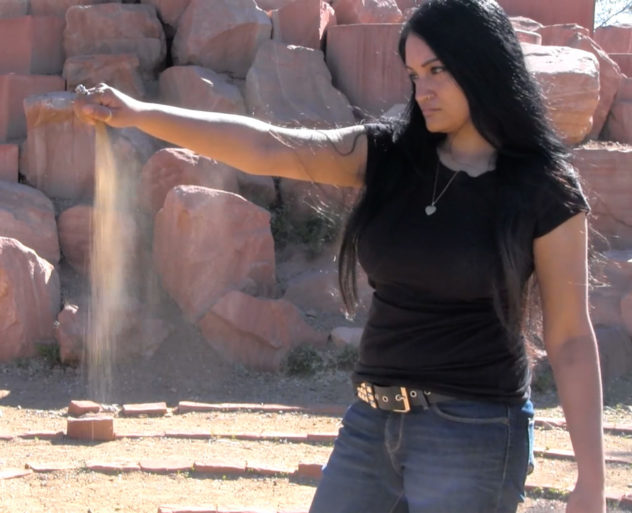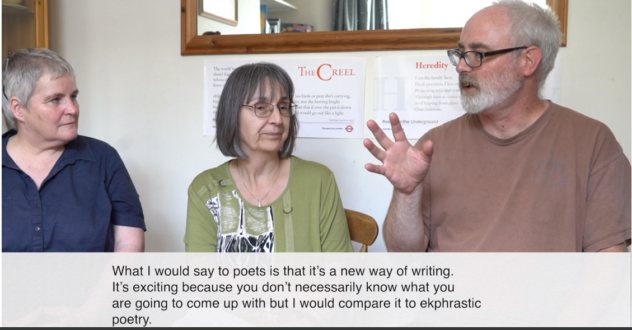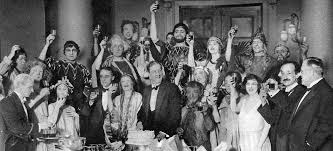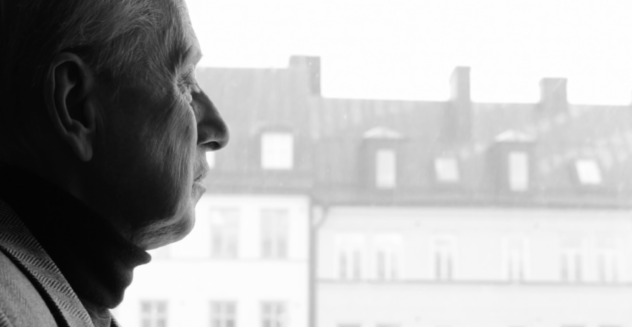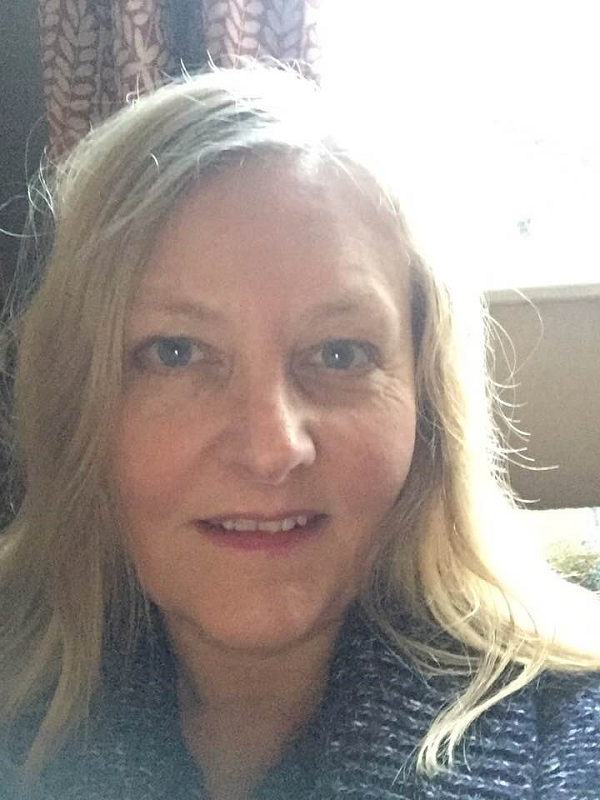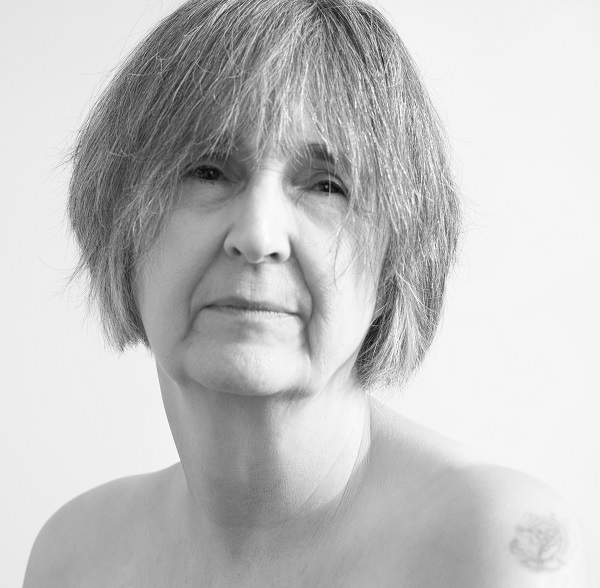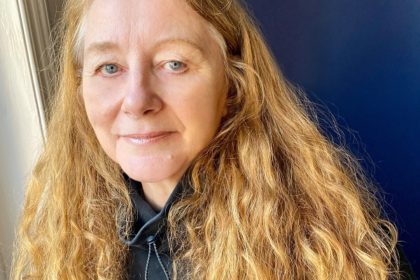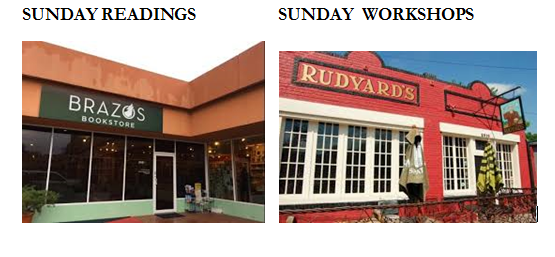JUDGES: ENOUGH Anthology (2019)
 Robin Davidson is a poet, translator, and professor of English at the University of Houston- Downtown. She is author of Luminous Other, recipient of The Ashland Poetry Press’s 2012 Richard Snyder Memorial Publication Prize. She is co-translator with Ewa Elżbieta Nowakowska of The New Century: Poems by Ewa Lipska (Northwestern UP)as well as two poetry chapbooks, Kneeling in the Dojo (Finishing Line Press) and City that Ripens on the Tree of the World (Calypso Editions). She has received, among other awards, a Fulbright professorship at the Jagiellonian University in Kraków and an NEA translation fellowship.
Robin Davidson is a poet, translator, and professor of English at the University of Houston- Downtown. She is author of Luminous Other, recipient of The Ashland Poetry Press’s 2012 Richard Snyder Memorial Publication Prize. She is co-translator with Ewa Elżbieta Nowakowska of The New Century: Poems by Ewa Lipska (Northwestern UP)as well as two poetry chapbooks, Kneeling in the Dojo (Finishing Line Press) and City that Ripens on the Tree of the World (Calypso Editions). She has received, among other awards, a Fulbright professorship at the Jagiellonian University in Kraków and an NEA translation fellowship.
In May 2015 she was named Houston’s second Poet Laureate by Mayor Annise Parker.
Roy G. Guzmán is a Honduran poet whose first collection is coming out from Graywolf Press in 2020.
Roy also participated in the first Poetry Incubator, sponsored by the Poetry Foundation and Crescendo Literary, and was invited to run a workshop during the Incubator’s second year. After the Pulse nightclub massacre in Orlando, their poem “Restored Mural for Orlando” was turned into a chapbook with the help of poet and visual artist, D. Allen, to raise funds for the victims. With poet Miguel M. Morales, Roy edited the anthology Pulse/Pulso: In Remembrance of Orlando, published by Damaged Goods Press.
In 2016, Roy was the recipient of a Scribe for Human Rights Fellowship, focusing on issues affecting migrant farm workers in Minnesota. That same year, they were chosen to participate in the fourth Letras Latinas Writers Initiative gathering, sponsored by Letras Latinas, the literary initiative at the University of Notre Dame’s Institute for Latino Studies, in partnership with the Virginia G. Piper Center for Creative Writing and the MFA Program at Arizona State University. Roy returned to Arizona as a Letras Latinas Scholar in 2018.
In 2015, they were awarded a GRPP Graduate Research Fellowship to investigate trauma caused by violence in and migration from Honduras. In 2018, Roy was awarded a second GRPP Graduate Research Fellowship to travel to Honduras for research.
Roy holds degrees from the University of Minnesota, Dartmouth College, the University of Chicago, and the Honors College at Miami Dade College. They currently live in Minneapolis, where they are pursuing a PhD in Cultural Studies (Comparative Studies in Discourse and Society) at the University of Minnesota.
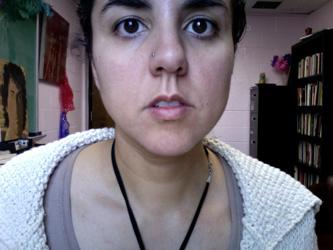 Carmen Giménez Smith is an American poet and lyric essay writer. She has won a number of awards for her poetry including the Juniper Prize for her third collection of poems, titled Goodbye, Flicker, published in 2012. The following year her collection called Milk and Filth won the National Book Critics Circle Award (Poetry). In 2010 she was awarded the American Book Award for her memoir, Bring Down the Little Birds. Around the same time she produced three chapbooks” Glitch (2010), followed by Reason’s Monster and Can We Talk Here in 2011.
Carmen Giménez Smith is an American poet and lyric essay writer. She has won a number of awards for her poetry including the Juniper Prize for her third collection of poems, titled Goodbye, Flicker, published in 2012. The following year her collection called Milk and Filth won the National Book Critics Circle Award (Poetry). In 2010 she was awarded the American Book Award for her memoir, Bring Down the Little Birds. Around the same time she produced three chapbooks” Glitch (2010), followed by Reason’s Monster and Can We Talk Here in 2011.
She joined the creative writing program at the Iowa Writers’ Workshop, gained a Master of Fine Arts degree and joined the teaching staff as a Teaching-Writing Fellow. Her latest academic post is at the New Mexico State University, as assistant professor in the Master of Fine Arts Program in Creative Writing and editing the university literary magazine, Puerto del Sol. She also champions women in the literary world as a committee member of VIDA: Women in Literary Arts and is co-director of Canto Mundo, a national organization that cultivates a community of Latinx poets.
 Patricia Spears Jones’s poetry collections include Painkiller (2010), Femme du Monde(2006), The Weather That Kills (1995), and several chapbooks. Her work has been featured in numerous anthologies, including Angles of Ascent: A Norton Anthology of Contemporary African American Poetry (2013), Starting Today: 100 Poems for Obama’s First 100 Days (2010), Black Nature: Four Centuries of African American Nature Poetry (2009), and Best American Poetry (2000).
Patricia Spears Jones’s poetry collections include Painkiller (2010), Femme du Monde(2006), The Weather That Kills (1995), and several chapbooks. Her work has been featured in numerous anthologies, including Angles of Ascent: A Norton Anthology of Contemporary African American Poetry (2013), Starting Today: 100 Poems for Obama’s First 100 Days (2010), Black Nature: Four Centuries of African American Nature Poetry (2009), and Best American Poetry (2000).
A contributing editor at BOMB magazine, Spears Jones has also served as a program coordinator for the Poetry Project at St. Mark’s Church and led the New Works Program for the Massachusetts Council of Arts and Humanities. Her honors include an appointment as senior fellow for the Black Earth Institute, grants from the National Endowment for the Arts and the New York Foundation for the Arts, awards from the Foundation for Contemporary Art and the New York Community Trust, and residencies at Yaddo, Bread Loaf, the Millay Colony, the Squaw Valley Community of Writers, and the Virginia Center for the Creative Arts.
A resident of New York for more than 30 years, Spears Jones has taught at LaGuardia Community College and Queens College CCNY, Parsons, The New School, and the College of New Rochelle. She lives in Brooklyn, New York.
JUDGES: POWER (2018)
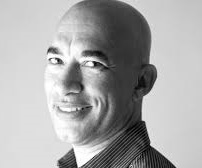 Cyrus Cassells’ has five poetry collections: The Crossed-Out Swastika, More Than Peace and Cypresses (both from Copper Canyon Press); Beautiful Signor which won the Lambda Literary Award; Soul Make a Path Through Shouting , which was nominated for the Pulitzer Prize and received the William Carlos Williams Award; and The Mud Actor , his first book, which was a National Poetry Series selection. Cassells is the recipient of a 1995 Pushcart Prize, the Peter I.B. Lavan Younger Poets Award and fellowships from the Lannan Foundation, the Rockefeller Foundation and the National Endowment for the Arts. He has worked as a translator, film critic, actor and teacher. He is a professor of English at Texas State.
Cyrus Cassells’ has five poetry collections: The Crossed-Out Swastika, More Than Peace and Cypresses (both from Copper Canyon Press); Beautiful Signor which won the Lambda Literary Award; Soul Make a Path Through Shouting , which was nominated for the Pulitzer Prize and received the William Carlos Williams Award; and The Mud Actor , his first book, which was a National Poetry Series selection. Cassells is the recipient of a 1995 Pushcart Prize, the Peter I.B. Lavan Younger Poets Award and fellowships from the Lannan Foundation, the Rockefeller Foundation and the National Endowment for the Arts. He has worked as a translator, film critic, actor and teacher. He is a professor of English at Texas State.
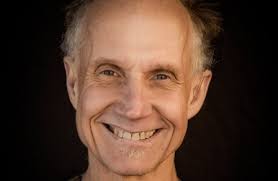 TONY HOAGLAND has authored 5 books of poetry, most recently Application for Release from the Dream: Poems (2015). Other titles include Unincorporated Persons in the Late Honda Dynasty, Sweet Ruin, winner of the Brittingham Prize in Poetry, Donkey Gospel, winner of the James Laughlin Award of The Academy of American Poets, and What Narcissism Means to Me, a finalist for the National Book Critics Circle Award as well as two collection of essays about poetry, Real Sofistikashun, & Twenty Poems That Could Save America and Other Essays all published by Graywolf Press. He has received the Jackson Poetry Prize from Poets & Writers, the Mark Twain Award from the Poetry Foundation, and the O. B. Hardison, Jr. Poetry Prize from the Folger Shakespeare Library, as well as NEA and Guggenheim Fellowships among others. He teaches at the University of Houston and in the low-residency MFA program at Warren Wilson College. He lives in Santa Fe, New Mexico.
TONY HOAGLAND has authored 5 books of poetry, most recently Application for Release from the Dream: Poems (2015). Other titles include Unincorporated Persons in the Late Honda Dynasty, Sweet Ruin, winner of the Brittingham Prize in Poetry, Donkey Gospel, winner of the James Laughlin Award of The Academy of American Poets, and What Narcissism Means to Me, a finalist for the National Book Critics Circle Award as well as two collection of essays about poetry, Real Sofistikashun, & Twenty Poems That Could Save America and Other Essays all published by Graywolf Press. He has received the Jackson Poetry Prize from Poets & Writers, the Mark Twain Award from the Poetry Foundation, and the O. B. Hardison, Jr. Poetry Prize from the Folger Shakespeare Library, as well as NEA and Guggenheim Fellowships among others. He teaches at the University of Houston and in the low-residency MFA program at Warren Wilson College. He lives in Santa Fe, New Mexico.
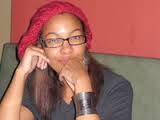 RAINA J. LEÓN is a Cave Canem graduate fellow and member of the Carolina African American Writers Collective, CantoMundo and Macondo, and has been published in over 50 publications in poetry, fiction, nonfiction, and academic scholarship. Her first collection of poetry, Canticle of Idols was a finalist for both the Cave Canem First Book Poetry Prize and the Andrés Montoya Poetry Prize. Her second book, Boogeyman Dawn was a finalist for the Naomi Long Madgett Prize. In 2016, her third book, sombra: dis(locate) and a chapbook, profeta without refuge, were released. She has received fellowships and residencies with Macondo, Cave Canem, CantoMundo, Montana Artists Refuge, the Macdowell Colony, Kimmel Harding Nelson Center for the Arts, Vermont Studio Center, the Tyrone Guthrie Center in Annamaghkerrig, Ireland and Ragdale. She is currently an associate professor of education in the Kalmanovitz School of Education at St. Mary’s College of California.
RAINA J. LEÓN is a Cave Canem graduate fellow and member of the Carolina African American Writers Collective, CantoMundo and Macondo, and has been published in over 50 publications in poetry, fiction, nonfiction, and academic scholarship. Her first collection of poetry, Canticle of Idols was a finalist for both the Cave Canem First Book Poetry Prize and the Andrés Montoya Poetry Prize. Her second book, Boogeyman Dawn was a finalist for the Naomi Long Madgett Prize. In 2016, her third book, sombra: dis(locate) and a chapbook, profeta without refuge, were released. She has received fellowships and residencies with Macondo, Cave Canem, CantoMundo, Montana Artists Refuge, the Macdowell Colony, Kimmel Harding Nelson Center for the Arts, Vermont Studio Center, the Tyrone Guthrie Center in Annamaghkerrig, Ireland and Ragdale. She is currently an associate professor of education in the Kalmanovitz School of Education at St. Mary’s College of California.
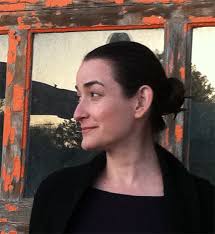 SASHA WEST‘s first book Failure and I Bury the Body, was selected by D. Nurkse for the National Poetry Series, and published by Harper Collins. Her poems have appeared in the Southern Review, Ninth Letter, Forklift, Ohio, Third Coast, Born, and elsewhere. She holds graduate degrees from Johns Hopkins University and the University of Houston, where she was editor of Gulf Coast. Her work has garnered awards including scholarships from the Bread Loaf Writers’ Conference, Rice University’s Parks Fellowship, Pushcart nominations, and Inprint’s Verlaine Prize. She lives in Austin and teaches writing at the University of Texas’s LBJ School of Public Affairs.
SASHA WEST‘s first book Failure and I Bury the Body, was selected by D. Nurkse for the National Poetry Series, and published by Harper Collins. Her poems have appeared in the Southern Review, Ninth Letter, Forklift, Ohio, Third Coast, Born, and elsewhere. She holds graduate degrees from Johns Hopkins University and the University of Houston, where she was editor of Gulf Coast. Her work has garnered awards including scholarships from the Bread Loaf Writers’ Conference, Rice University’s Parks Fellowship, Pushcart nominations, and Inprint’s Verlaine Prize. She lives in Austin and teaches writing at the University of Texas’s LBJ School of Public Affairs.
JUDGES: WORK (2017)
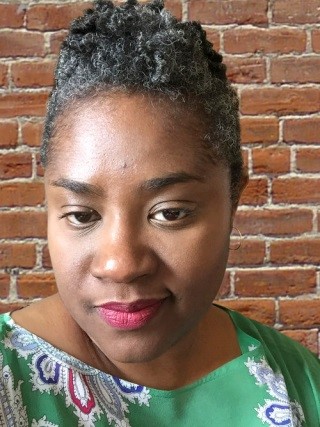 Niki Herd is the author of The Language of Shedding Skin (Main Street Rag). Herd co-edited with Meg Day Laura Hershey: On the Life & Work of an American Master (Pleiades Press). Herd’s poetry, essays, and criticism appear in or are forthcoming from Oxford University Press, Copper Nickel, Academy of American Poets (Poem-a-Day), Lit Hub, The Rumpus, and Salon, among other journals and anthologies. Her work has been supported by the Ucross Foundation, Bread Loaf Writers’ Conference, the Newberry Library, and Cave Canem.
Niki Herd is the author of The Language of Shedding Skin (Main Street Rag). Herd co-edited with Meg Day Laura Hershey: On the Life & Work of an American Master (Pleiades Press). Herd’s poetry, essays, and criticism appear in or are forthcoming from Oxford University Press, Copper Nickel, Academy of American Poets (Poem-a-Day), Lit Hub, The Rumpus, and Salon, among other journals and anthologies. Her work has been supported by the Ucross Foundation, Bread Loaf Writers’ Conference, the Newberry Library, and Cave Canem.
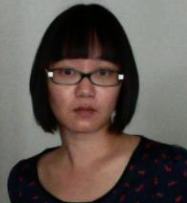 Lily Hoang is the author of four books, including Changing, recipient of a PEN Open Books Award. Her choose-your-own adventure love story Old Cat Lady is forthcoming from 1913 Books in October 2015. With Joshua Marie Wilkinson, she edited the anthology The Force of What’s Possible: Writers on Accessibility and the Avant-Garde. She teaches in the MFA program at New Mexico State University, where she is Associate Department Head. She is Prose Editor at Puerto del Sol and Nonfiction Editor at Drunken Boat.
Lily Hoang is the author of four books, including Changing, recipient of a PEN Open Books Award. Her choose-your-own adventure love story Old Cat Lady is forthcoming from 1913 Books in October 2015. With Joshua Marie Wilkinson, she edited the anthology The Force of What’s Possible: Writers on Accessibility and the Avant-Garde. She teaches in the MFA program at New Mexico State University, where she is Associate Department Head. She is Prose Editor at Puerto del Sol and Nonfiction Editor at Drunken Boat.
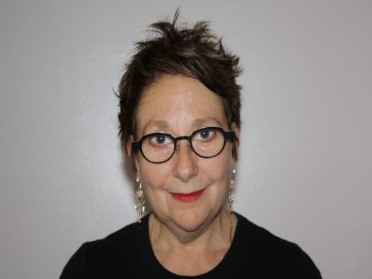 Yerra Sugarman is the author of three poetry collections: Forms of Gone, which was a National Book Critics Circle “Favorite First Book,” The Bag of Broken Glass, which was a National Book Critics Circle “Recommended Book,” and Aunt Bird Her poetry, translations, and critical articles have appeared in numerous journals. She has been the recipient of a National Endowment for the Arts Fellowship in Poetry, PEN American Center’s PEN/Joyce Osterweil Award, a “Discovery”/The Nation Poetry Prize, the Poetry Society of America’s George Bogin Memorial Award and its Cecil Hemley Memorial Award, a Canada Council Grant for Creative Writers, a Chicago Literary Award, and a Glenna Luschei Prairie Schooner Award.
Yerra Sugarman is the author of three poetry collections: Forms of Gone, which was a National Book Critics Circle “Favorite First Book,” The Bag of Broken Glass, which was a National Book Critics Circle “Recommended Book,” and Aunt Bird Her poetry, translations, and critical articles have appeared in numerous journals. She has been the recipient of a National Endowment for the Arts Fellowship in Poetry, PEN American Center’s PEN/Joyce Osterweil Award, a “Discovery”/The Nation Poetry Prize, the Poetry Society of America’s George Bogin Memorial Award and its Cecil Hemley Memorial Award, a Canada Council Grant for Creative Writers, a Chicago Literary Award, and a Glenna Luschei Prairie Schooner Award.
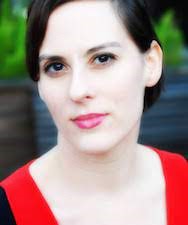
Elizabeth Lyons holds an MFA from Purdue University and is a Ph.D. candidate at the University of Houston. Her poems have appeared in Tin House, Indiana Review, New South, and Salt Hill. A recipient of fellowships and prizes from the Bread Loaf Writer’s Conference, Vermont Studio Center, the I-Park Foundation, and the Academy of American Poets, she lives in Houston, TX.
 Pattiann Rogers has published 12 books of poetry, the most recent being Holy Heathen Rhapsody (Penguin, 2013) and Wayfare (Penguin, 2008). Her poems have won three book awards from the Texas Institute of Letters, four Pushcart Prizes, the Tietjens Prize and the Hokin Prize from Poetry, the Roethke Prize from Poetry Northwest and the Strousse Award twice from Prairie Schooner. Rogers has been the recipient of two NEA grants, a Guggenheim Fellowship, and a Lannan Poetry Fellowship. She received her MA from the University of Houston in 1981 and has taught in numerous colleges and universities.
Pattiann Rogers has published 12 books of poetry, the most recent being Holy Heathen Rhapsody (Penguin, 2013) and Wayfare (Penguin, 2008). Her poems have won three book awards from the Texas Institute of Letters, four Pushcart Prizes, the Tietjens Prize and the Hokin Prize from Poetry, the Roethke Prize from Poetry Northwest and the Strousse Award twice from Prairie Schooner. Rogers has been the recipient of two NEA grants, a Guggenheim Fellowship, and a Lannan Poetry Fellowship. She received her MA from the University of Houston in 1981 and has taught in numerous colleges and universities.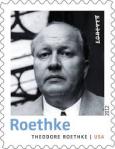 Theodore Roethke (1908 -1963) is the author of 10 books of poetry. His first book, Open House (1941), took ten years to write and was critically acclaimed upon its publication. In 1953, he won the Pulitzer Prize for his poetry volume The Wakening. He was mentor to a generation of Northwest poets and is regarded as among the most accomplished and influential poets of his time. In 2012, he was featured on a United States postage stamp as one of ten great 20th Century American poets.
Theodore Roethke (1908 -1963) is the author of 10 books of poetry. His first book, Open House (1941), took ten years to write and was critically acclaimed upon its publication. In 1953, he won the Pulitzer Prize for his poetry volume The Wakening. He was mentor to a generation of Northwest poets and is regarded as among the most accomplished and influential poets of his time. In 2012, he was featured on a United States postage stamp as one of ten great 20th Century American poets.
